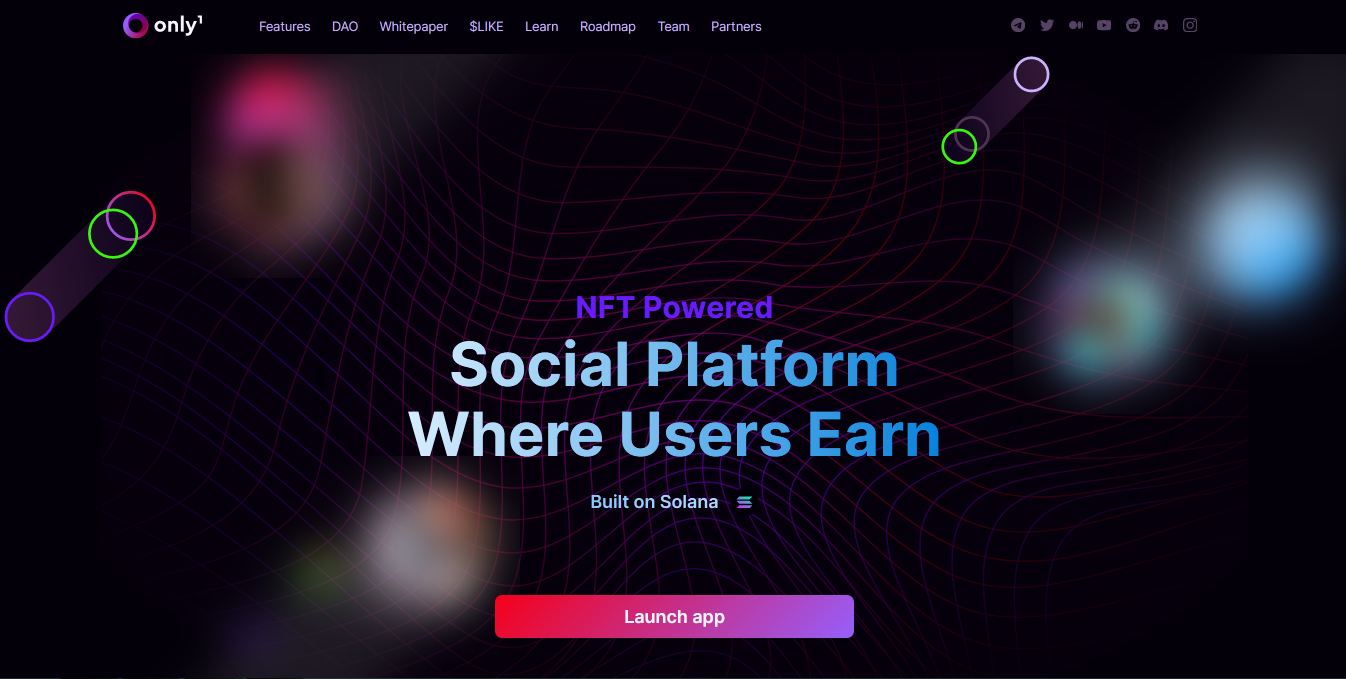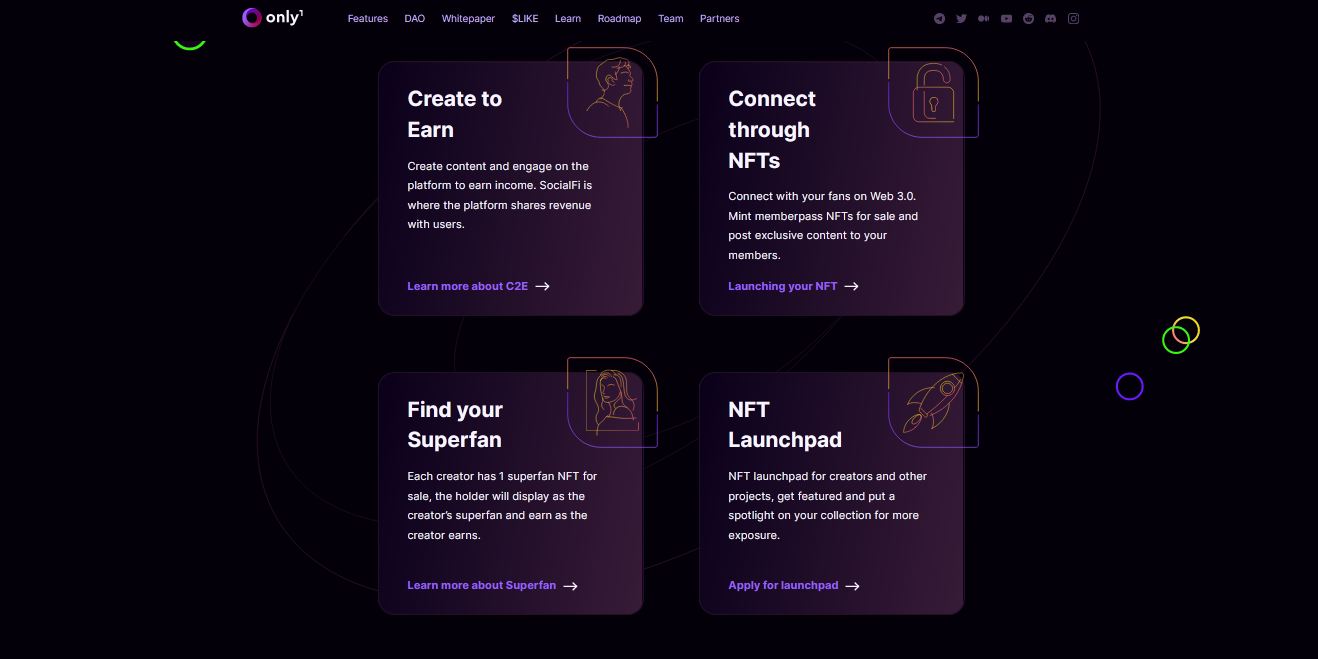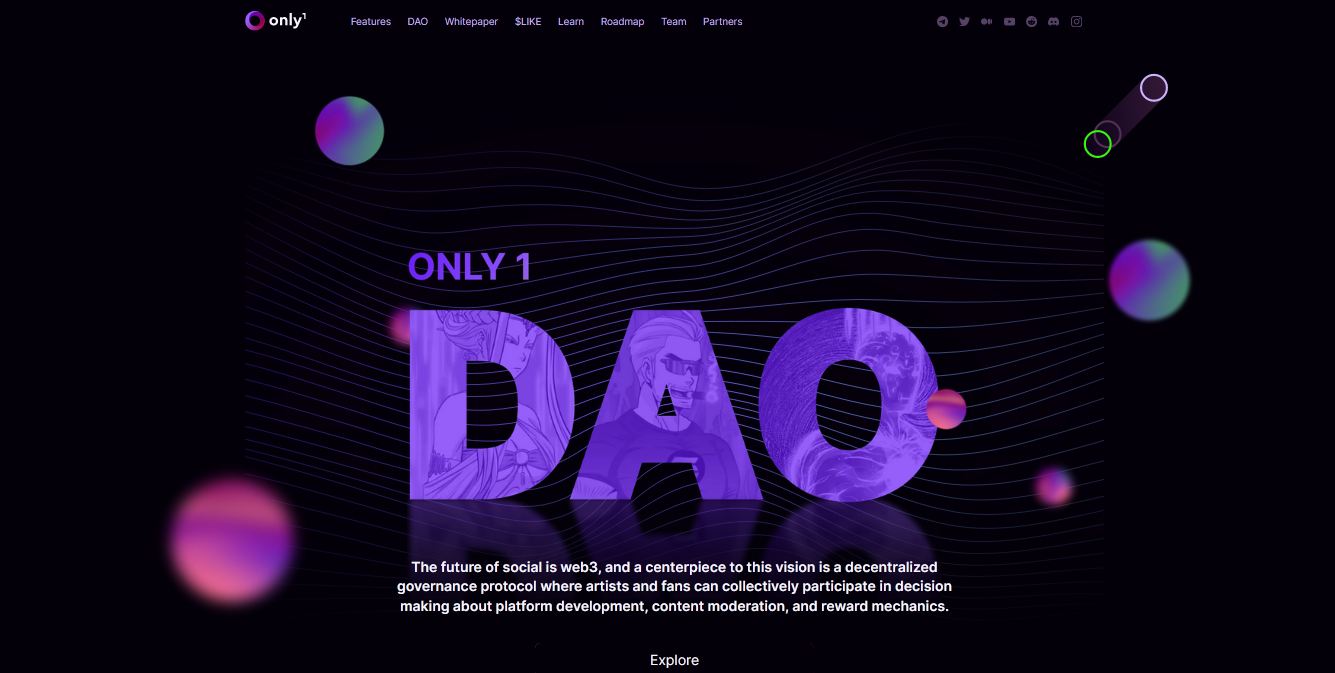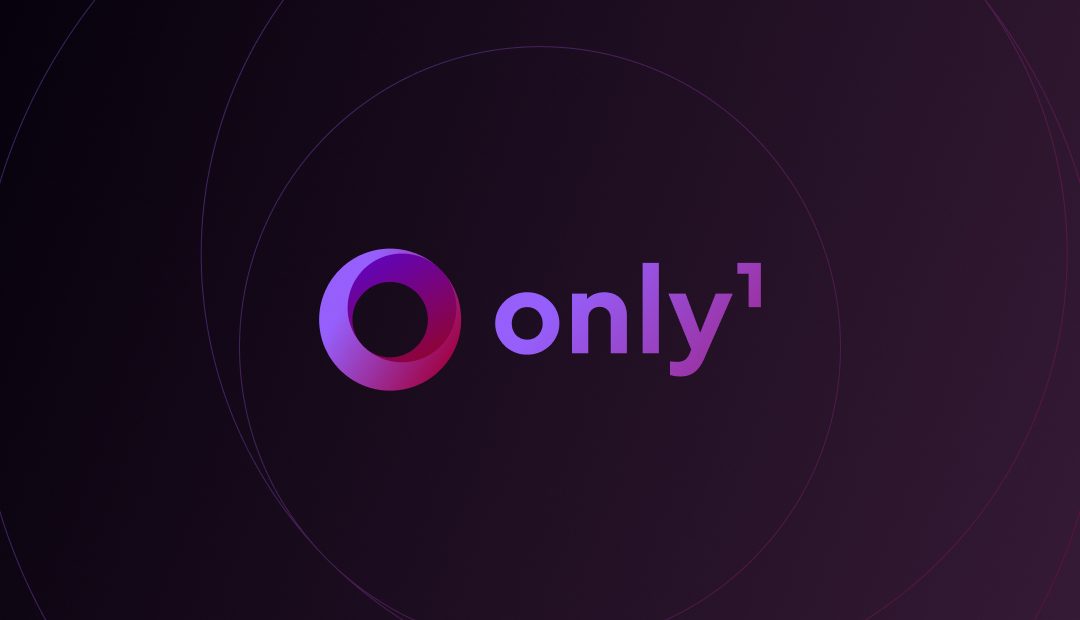Only1 is an NFT-powered social media protocol that is built on Solana. It departs from the traditional centralized social media platforms like Twitter, Facebook, and Instagram by being a decentralized platform.
Besides being a decentralized platform, Only1 uses non-fungible tokens (NFTs) to allow content creators to directly interact with their fans without the need for third parties.
 In this review, we shall look at how Only1 works, its key features, pros and cons, before giving our final verdict. Read on for details.
In this review, we shall look at how Only1 works, its key features, pros and cons, before giving our final verdict. Read on for details.
How it works
Being a decentralized NFT-powered social media platform on Solana, Only1 provides a platform where social media content creators can create their content, monetize it on their own without the need for third parties, and allow their fans to directly interact with the content using NFTs.
With Only1, a social media content creator undergoes a Know Your Customer (KYC) process. A Genesis NFT is then minted for them, which reflects their identity and can be associated with perks and rewards, The Genesis NFT can also be traded on the NFT marketplace.
With the Genesis NFT, content creators can now go ahead and mint Memberpass NFTs for their fans and in exchange receive $LIKE, the native token of Only1. The fans can then trade the Memberpass NFTs on the NFT marketplace.
When a creator mints Content NFTs and fans purchase the NFTs using $LIKE, a portion of the $LIKE tokens used in the purchase are burned to reduce the supply. $LIKE is the native token of the Only1 platform and is the primary mode of making payments in trading NFTs and also rewarding both fans and content creators.

Additionally, fans can also stake $LIKE tokens into Creators’ Staking Pools (which represent the profile of the creators) and earn depending on the pool’s APY, which changes depending on the creator’s engagement the higher the engagement; the more the APY.
Fans can also go ahead and purchase Genesis NFTs from content creators. In such a case, both the Genesis NFT Owner (who is the fan that just purchased the Genesis NFT) and the creator earn a split of the staking rewards from the Total Value Locked.
Apart from trading Genesis NFTs, Memberpass NFTs, and staking $LIKE tokens, fans also get a chance to invest in limited edition NFTs through Initial NFT Offering (INO) on the NFT Launchpad
Only1 DAO
Only1 has a decentralized autonomous organization (DAO) that is tasked with regulating the community guideline and platform development while balancing between the safety of the community on the platform, and freedom of expression.
 The DAO makes Only1 completely decentralized meaning no one person or party has control of the platform or how it operates. Every member has an equal say.
The DAO makes Only1 completely decentralized meaning no one person or party has control of the platform or how it operates. Every member has an equal say.
Pros and Cons of Only1
Pros
- Scalability – Only1 is highly scalable for using Solana.
- Lower transaction costs – besides scalability, Solana also charges lower gas fees for transactions
- A fair creator economy – Only1 pays users (content creators and fans) rather than the conventional advert-platform payment channel. This means the content creators do not have to share the value generated by their content with third parties.
- User optimized for users – Ads are optimized for users rather than the platform, unlike conventional social media platforms.
Cons
- Not many marketers (advertisers) are using Only1 at the moment; something attributed to the fact that the social media market is not fully ready for the widespread adoption of decentralized applications.
Why should you use Only1?
On traditional social media platforms like Twitter, Facebook, or Instagram, creators monetize their content through third parties (middle-men) which mainly carries the form of merchandising, shout-outs, Ad advertisements, and sponsorships. And although these methods work, the revenue generated by the content engagement is split between content creators and third parties.
On the traditional social platforms, advertisers pay the social media platforms for users’ attention and the platforms then pay the content creators.
But with Only1, which is a decentralized social media platform, users get direct remuneration for generating user attention.
Additionally, content creators in conventional social media platforms face constant censorship and demonetization pressure from third parties, which is not the case with Only1 since there are no third parties involved whatsoever. Only1 users and creators alike earn tokens by engaging in social activities on the platform and share the passive income generated from trading NFTs like in the ‘Play-to-Earn’ model.
Final Verdict
While NFTs have created a paradigm shift within the crypto industry, more and more innovative products like Only1 are increasingly coming up to solve the issue of centralization.
As a decentralized social media platform, Only1 stands out among social media platforms in being fair in terms of rewarding content providers and fans. Only1 believes that those responsible for user engagement should be the sole beneficiaries of any social media engagement. It is therefore a platform worth considering for social media content creators if they want to increase their revenue sources and get a bigger slice of the pie.
The post Only1 review: redefining social media experience using NFTs appeared first on CoinJournal.














